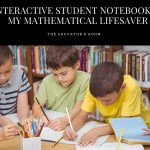 Never have I been more inspired, more exhausted or revitalized during a professional development than I was at the annual College Board AP World History Reading. Each year in June, college faculty and teachers from public and private schools gather from around the globe at a central location to grade AP exams. Confidence and expertise are humbled by the process of developing standard grading rubrics that set minimums and maximums for quality writing. Argument, debate and collaboration help us set aside subjective differences, to seek common ground as we credit students for developing a thesis, using evidence or providing analysis and other such skills for evaluation. Stress is balanced with daily runs through the city of Salt Lake, Utah, a quick hike into the Wasatch and the nightly gatherings at bars and coffee houses with peers I have come to know with great regard.
Never have I been more inspired, more exhausted or revitalized during a professional development than I was at the annual College Board AP World History Reading. Each year in June, college faculty and teachers from public and private schools gather from around the globe at a central location to grade AP exams. Confidence and expertise are humbled by the process of developing standard grading rubrics that set minimums and maximums for quality writing. Argument, debate and collaboration help us set aside subjective differences, to seek common ground as we credit students for developing a thesis, using evidence or providing analysis and other such skills for evaluation. Stress is balanced with daily runs through the city of Salt Lake, Utah, a quick hike into the Wasatch and the nightly gatherings at bars and coffee houses with peers I have come to know with great regard.
The 2013 AP World History Reading had 1,008 readers who scored 230,915 exams containing 692,745 individual essays. To me, this is the epitome of Big Data that terrifies some and energizes others. I personally contributed a daily scoring of 80-200 essays. Reading leaves me blurry, sometimes disillusioned when I realize so few will receive the accolades of the highest score but this also serves the purpose of acknowledging patterns of student learning. I learn to look beyond what students know well to understand what they need in order to succeed in college. This made perfect sense to me after one fatiguing day of grading when I returned to my hotel to stare blindly at the movie “Moneyball.” The movie presents a general manager’s attempt to build a professional baseball team by shifting how players are valued when they are bought or sold. What resonated with me was the scene in which players improved their training when managers presented them with notes and performance analysis. The data outlined pathways to potential which changed their value as a player and led to better game performance.
Equating world history grading to baseball spring training is not a stretch. Grading essay after essay for days takes perseverance. After every set of 25 essays, I stretch, walk to a lobby and do 25 push-ups. I return to my station and begin making lists. I never compromise confidentiality, nor do I look to take pleasure in student error, but I list common misspelled words or impressive vocabulary terms. I list historic eras that students know well and world regions that are misrepresented. I remind myself to not only teach the names of West African empires but to repeatedly review contributions made during various eras. I list names of cities and sites in proximity to Indian Ocean trade. Students write confidently when teachers address histories in multiple lectures as multiple threads that cross over each other throughout time. They do not benefit from isolated lectures which address an idea but once and then move on.
The Art of Winning an Unfair Game, by Michael Lewis, was the basis for the film, and my analogy ends there. Metaphorically the game concept of essay writing helps build appreciation for strategizing because student success lies in how they write. I pour over this during one of three daily coffee breaks with my colleagues. Comparing teaching strategies leads us to develop simple changes. Students who tend to transform an essay question into a one sentence thesis had a greater tendency towards failure than students who develop their thesis using three sentences.
We ponder methods for promoting use of words that trigger comparisons or phrases that lead to use of evidence. “Such as” or “for example” are not used enough. I add to my lists lessons that will incorporate rewriting unfinished introductions. Maybe students will learn to write as teams. Teams might discuss their writing styles, thereby diminishing the intimidation of standardized testing.
During my first year teaching AP I made the assumption that students would benefit from leaving an essay unfinished and moving on to the next question. While the objective was to eliminate distracted focus on timed testing, it also eliminated the opportunity to write a strong conclusion. Collaborative essay reading has presented me with the realization that students write their best responses when they complete each question without interruption. Unwittingly I had led students to lose an opportunity to score higher. Thankfully the College Board offers trainings, online forums, and samples of AP exams with student essays. But, how many teachers are misguiding students because they do not participate fully in the professional developments available?
Halfway through the week, the College Board hosts authors who present histories as storytellers. I sit and listen to their sing song voice and leave my competitive nature behind me. Each year I find myself humbled by these people who, in earnest, are driven to solve questions left unanswered. I let myself become lost in the wonder of their stories and the excitement that there is still so much to learn about the past. I realize that it isn’t so important for students to score well as proof of what they know but to take this test as a challenge to improve upon the critical thinking skills they should continue to develop.
Just as students push themselves to unknown limits taking the exam, I push myself to unknown limits searching every scribble in every anonymous writing hoping to award points for that next, true unorthodox idea. I often find myself wondering and praying in hopes that someone is working just as hard to recognize the potential aptitude of my own students mixed in with theirs. Grading on standard means giving in and settling for commonalities in quality with the benefit of establishing a definite minimum. It means that students from all socio-economic backgrounds have a strong opportunity for success. When I take the time to share my notes with my classes, explaining what questions were the most difficult, how the power of one word can change the interpretation of the question, I find that students no longer ask “why do we need to know this?” instead they lean forward with the belief that they all can hit this out of the park.




